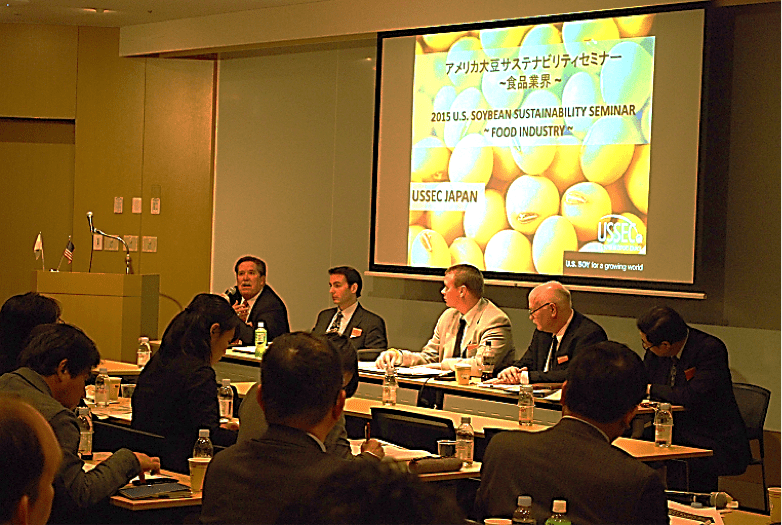USSEC Japan Holds Asia’s First U.S. Soy Sustainability Seminar
- Category:
- General News

USSEC Japan organized Asia’s first U.S. Soy sustainability seminar to introduce the Japanese food industry to the U.S. Soybean Sustainability Assurance Protocol (SSAP). A total of 160 food and soyfood processors, traders, media and government officials attended the three-day event where four meetings were held for press, tofu, food and importers, respectively, from January 28-30 in Tokyo.
The U.S. Soy Sustainability team from the U.S. included United Soybean Board (USB) director Steve Moore, American Soybean Association (ASA) director Bill Gordon, and USB/Smith Bucklin’s Josiah McClellan. The grower leaders presented the perspectives of U.S. farmers and introduced the SSAP. USSEC Japan Country Director Mitsuyuki Nishimura also reported the results of the consumer awareness survey USSEC Japan conducted in Summer 2014, followed by closing remarks made by USSEC Regional Director - North Asia Paul Burke.
Based on the survey, only 10 percent of Japanese consumers polled answered that they were interested in or had awareness of the word “sustainability.” However, their interest jumped to 50 percent when the meaning of sustainability was given along with the same awareness question. In addition, 60 percent answered they would buy soyfood products with sustainability labeling if the price remained the same.
Based on the results of the three-day event, USSEC wants the Japanese food industry to make the best use of the opportunity to promote their products and organizations by making it clear that they source sustainable soy ingredients from U.S. Although consumer awareness of sustainability is still low in Japan, USSEC hopes this initiative will trigger an interest in the improvement of environmental and food security issues. Soyfoods are essential to every meal in Japan with more than 60 percent being sourced from the U.S.